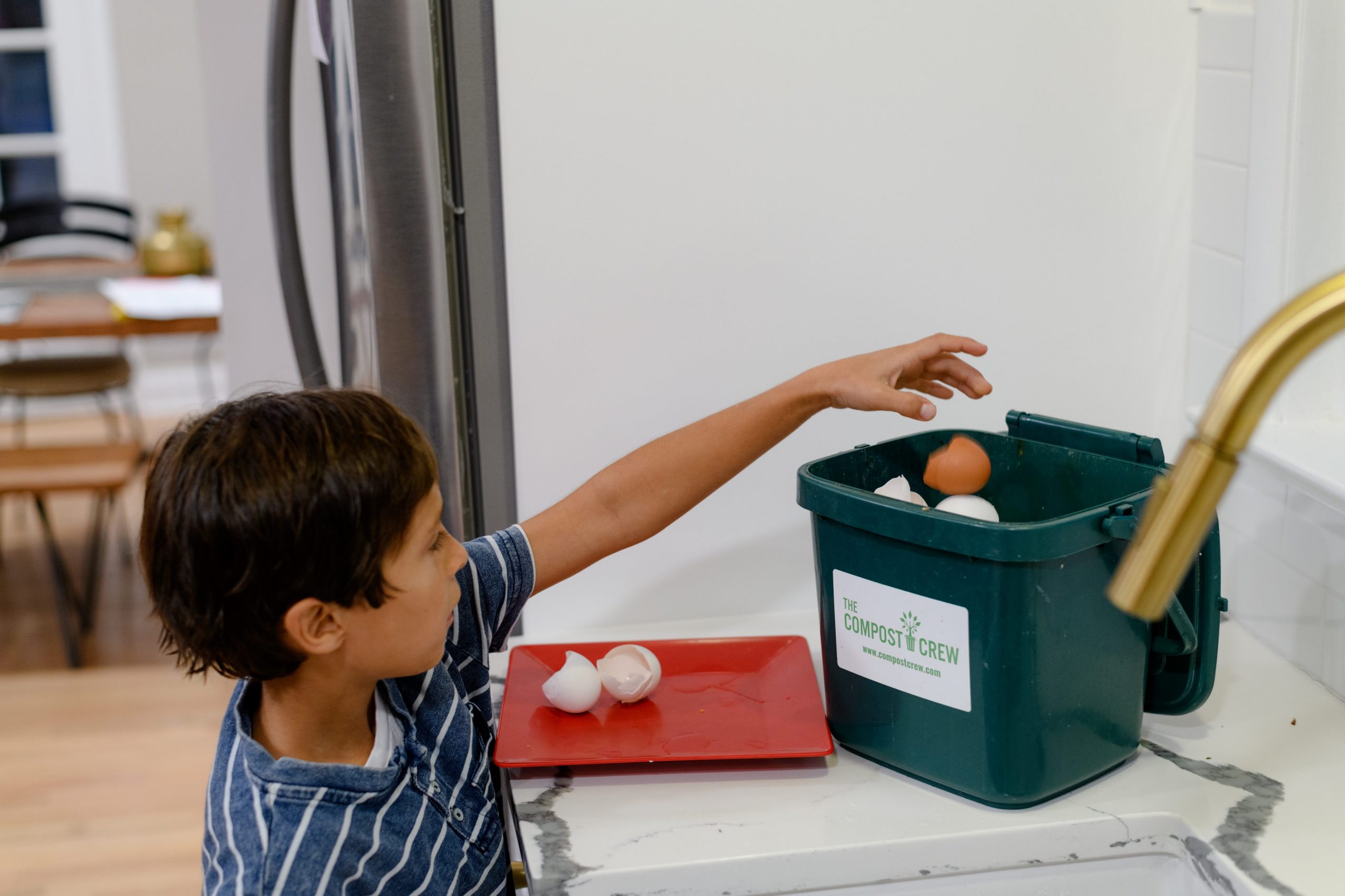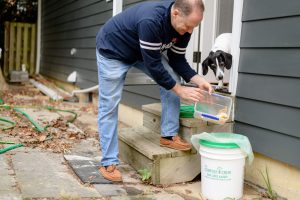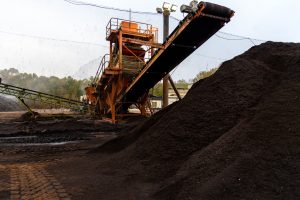Turning Food Scraps into Gold

Every day, Americans throw out immense amounts of trash, most of which is dumped into landfills or burned in trash incinerators, a costly system that damages both our health and the environment. According to The Washington Post, landfills and trash incinerators in the United States receive 167 million tons of garbage a year. When food waste ends up in a landfill, it does not break down properly and as a result produces methane gas, which is an extremely potent greenhouse gas emitter. Yet, typically, 50 percent of municipal garbage set out at the curb is compostable. A better alternative to tossing food scraps is to compost it.

Setting out food scraps for commercial collection.
Composting serves as an organic soil amendment to help revitalize the soil. Compost is formed by the decomposition of organic matter, which occurs aerobically (with oxygen). This can take place with different types of organic waste, such as the remains of fruits, vegetables, leaves, eggshells and tea bags. When composting, it is important to separate out non-organic material such as plastics in order to avoid contamination.
How Can I Use Compost?
First, instead of spending extra money buying fertilizer for your garden, you can compost your own food waste to increase the fertility of your soil. Not only are you reducing municipal waste, but you are also obtaining an excellent soil amendment that has a positive impact on the environment. If you are successful with it, other people will start doing it, too. Compost provides the three essential elements for the life of plants: Nitrogen, Phosphorus and Potassium, as well as other elements and some minerals that are essential for soil fertility.
Applying compost improves soil, including its physical, chemical, and biological properties. Compost improves soil structure, and in return reduces soil compaction and prevents erosion. It also increases water retention capacity, which is very beneficial in areas where water resources are limited. Its neutral PH makes it extremely reliable for use with all types of plants. It also contributes to the maintenance and development of the micro flora and micro fauna of the soil. Compost facilitates the absorption of nutritional elements by the plant and can increase the production of edible and ornamental plants alike.
Scaling Up Composting
Composting on a commercial scale can improve the soil quality of farm fields as well as in gardens. In Montgomery County,

Compost Crew collects food scraps and Organics Composting managed by Maryland Environmental Services turns these into compost.
the Department of Environmental Protection is working on a pilot composting program with local businesses. The long-term goal is to scale up operations to provide curbside pick up of both commercial and residential food scraps. For now, commercial composting companies offer monthly services to pick up household and business food scraps and turns it into valuable compost for your use. Community Food Rescue is thrilled to partner with Compost Crew, which is composting food scraps from our CFR Cooks! project.

Compost Crew staff
It is important for everyone, young and old, to learn about the benefits of composting, and start turning food scraps into compost—either at home or by using a commercial company. Together we can improve our soils without chemicals and reap the benefits in our home gardens and food systems.

